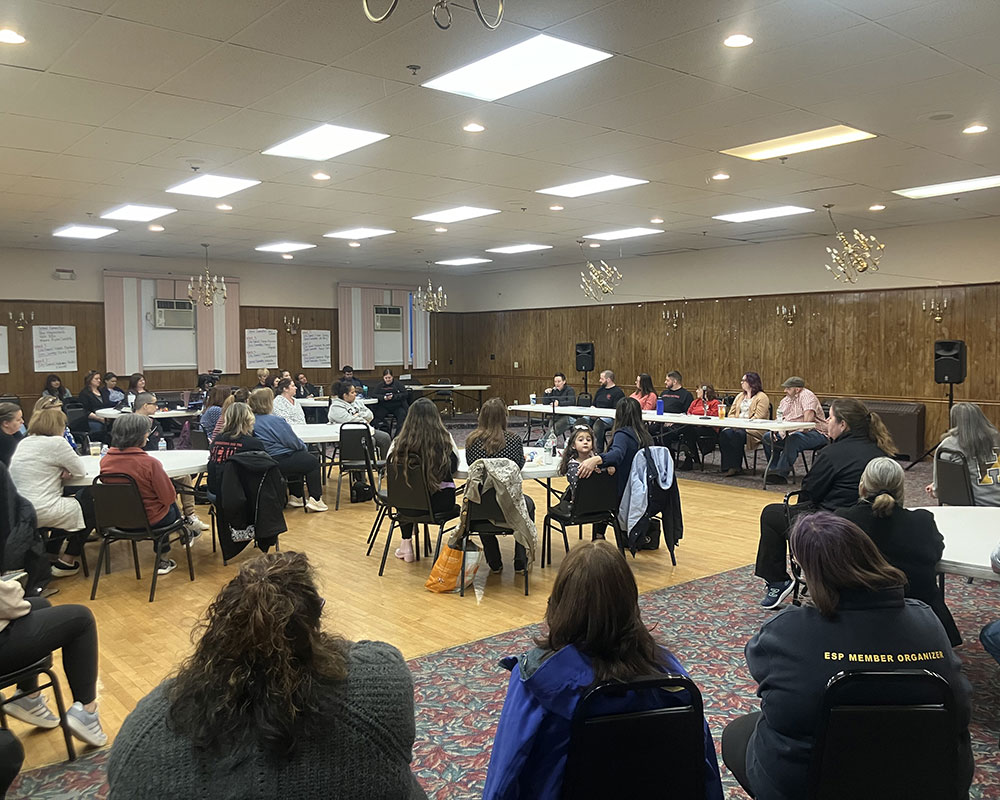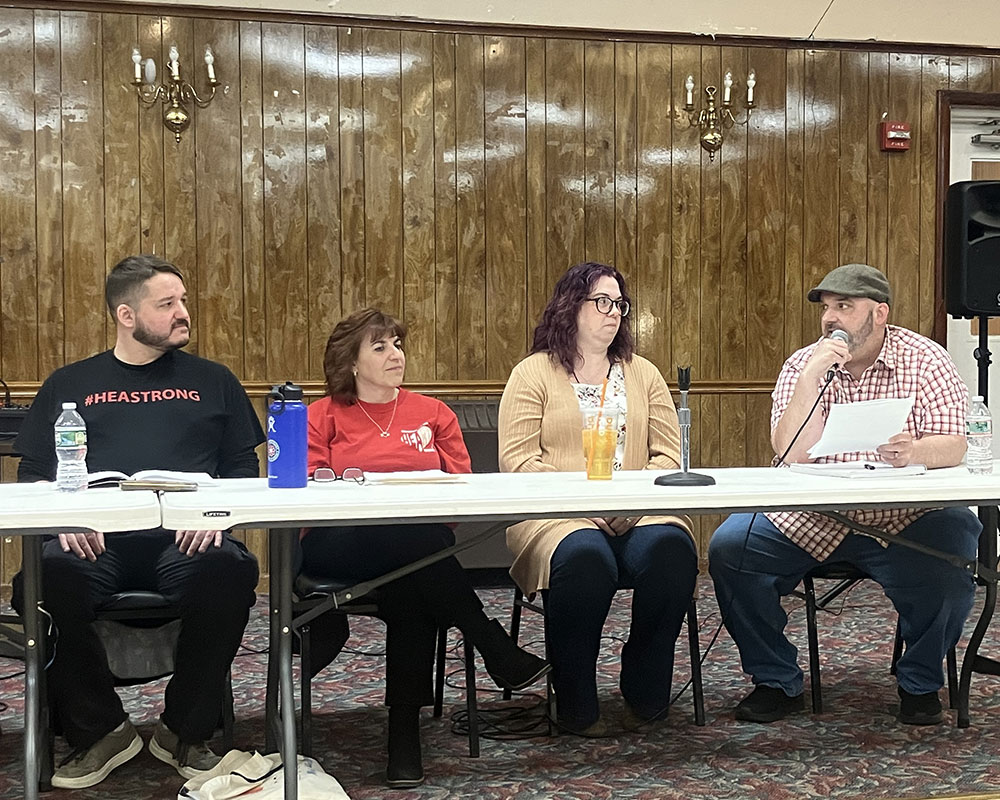(Additional photograph below.)
During a panel put on by the Haverhill Education Association last night, Education Support Professionals—or ESPs—said they do not earn enough money to get by, despite working what they called exhausting and chaotic jobs to support the district’s neediest children.
After the panelists finished, ESPs in the audience shared stories. “With upwards of 15 kids in a classroom—three and four years old, not potty trained—could you imagine 15 children needing to go to the bathroom 15 different times and you have two people in the room? Your bathroom is in the basement and you are on the third floor,” said Jennifer Ashley, an ESP at Moody Preschool Extension.
Parents, educators and a few elected officials filled the AmVets Post 147. People sat at large tables or in chairs pulled up between them, applauding frequently after passionate testimony. The gathering comes during ongoing contract negotiations between ESPs and the School Committee.
Member Richard J. Rosa told WHAV he and member Gail M. Sullivan “have had productive direct discussions with the ESP bargaining team, including many meetings where ESPs shared their concerns with us. We have made several wage proposals over the course of bargaining. We also have met as a bargaining team many times to discuss how we could address ESP concerns.”
The two teams have met 17 times since negotiations began in April 2023, according to Rosa.
“The HEA, and sometimes me, specifically, don’t have the best relationship with elected officials,” union President Barry Davis said after panelists spoke. He thanked School Committee Member Yonnie Collins and City Council Vice President Timothy J. Jordan for their attendance, noting that a few more officials were tuned into a Facebook livestream of the event.
“We want a relationship,” he continued. “We want to move past the way things were a year ago and we want to start to get work done, and we want to work together, and we want do what’s best for our students, and what’s best for our students is to pay ESPs a living wage, because if we’re not competitive, we’re going to lose people.”
ESPs are leaving Haverhill for higher pay in nearby districts, Davis added. Rosa told WHAV, “Like any job, ESPs leave for different reasons. I don’t think anyone knows exactly how many have left Haverhill to go directly to another school district in recent years.”
Rosa added that a wage proposal from a week ago “would make Haverhill’s ESP wages competitive with surrounding districts.” He said it included a 4% retroactive increase for this fiscal year, 3% for fiscal year 2025—which begins July 1—3% for 2026 and 2% for 2027. In addition, he said they proposed a roughly 6.5% raise for those who have worked for 15-24 years, and 10% for those with 25 or more. He added, the proposal would cost about $2.7 million over the four years.
As WHAV reported, School Committee negotiators requested a mediator from the state Department of Labor Relations last November, saying they had reached an impasse with the union. Davis objected to the decision, saying a lawyer the committee hired during the teacher’s strike two years ago had given a “presentation on how to beat teachers’ unions.”
Rosa then chastised Davis for spreading misinformation about negotiations and bringing his disabled child into the fray. “Yesterday I got an email from someone that said they were appalled with me because I leave my child with an ESP every day and I’m not doing what you want me to do,” he said at the time.

People filled AmVets Post 147 to listen to a panel of Education Support Professionals—or ESPs—and parents advocate for higher pay for the job. (WHAV News photograph.)
